Rating index:
Extraordinary (96-100)
Outstanding (93-95)
Very good to Excellent (89-92)
Above average to Good (86-88)
Below Average to Average (80-85)
Avoid (below 80)
More info >
Extraordinary (96-100)
Outstanding (93-95)
Very good to Excellent (89-92)
Above average to Good (86-88)
Below Average to Average (80-85)
Avoid (below 80)
More info >
When Gustav opened its doors early 2015, they were an instant hit with the German restaurant guides. Within a year after opening, they won a Michelin star, they entered the Gault Millau Deutschland guide with a 16 out of 20 rating, and Gault Millau named head chef Jochim Busch "Discovery of the Year". Gustav is the second restaurant of restaurateur couple Matthias Schieber and Milica Trajkovska, who also own Michelin starred Weinsinn in Frankfurt. As mentioned above, the kitchen is lead by Jochim Busch (b.1986). Busch received most of his training from chef Andreas Krolik, first at the fine dining restaurant at Brenners Park Hotel (2 Michelin stars) in Baden-Baden and later at Tiger-Gourmet restaurant (2 Michelin stars) in Frankfurt. Krolik left Tiger-Gourmet early 2015 and is currently head chef at Lafleur (2 Michelin stars) in Frankfurt (review of Lafleur will be online soon).

(courtesy of Gustav)
Gustav is open for lunch and dinner Tuesday through Saturday; no lunch on Saturdays though. At lunchtime there's a set lunch menu (2 courses €35, 3 courses €40 and for dinner you can select dishes from the à la carte menu (3 courses €65, 4 courses €75, 5 courses €85, 6 courses €95). Both the lunch and dinner menus have vegetarian options. The entirely European wine list (some 180 bins, about 50% German) focuses on organic and biodynamic wines and includes some lovely special editions from Weingut Simone Adams for Gustav and Weinsinn. I had dinner at Gustav on Friday 2 December 2016 and I ordered a 4-course menu.
First to arrive was a "Zwiebelkuche", a perfect little bite of sweet onions and onion crème served on a puff pastry biscuit, shortly after followed by a "Kartoffelkrapfen", pomme dauphine with some pointy cabbage Sauerkraut and shredded blood sausage perched on top, and finally there was a little cup of meaty lentil broth seasoned with horseradish. Three splendid and well-conceived appetisers, the Kartoffelkrapfen being an imaginative take on this German classic.
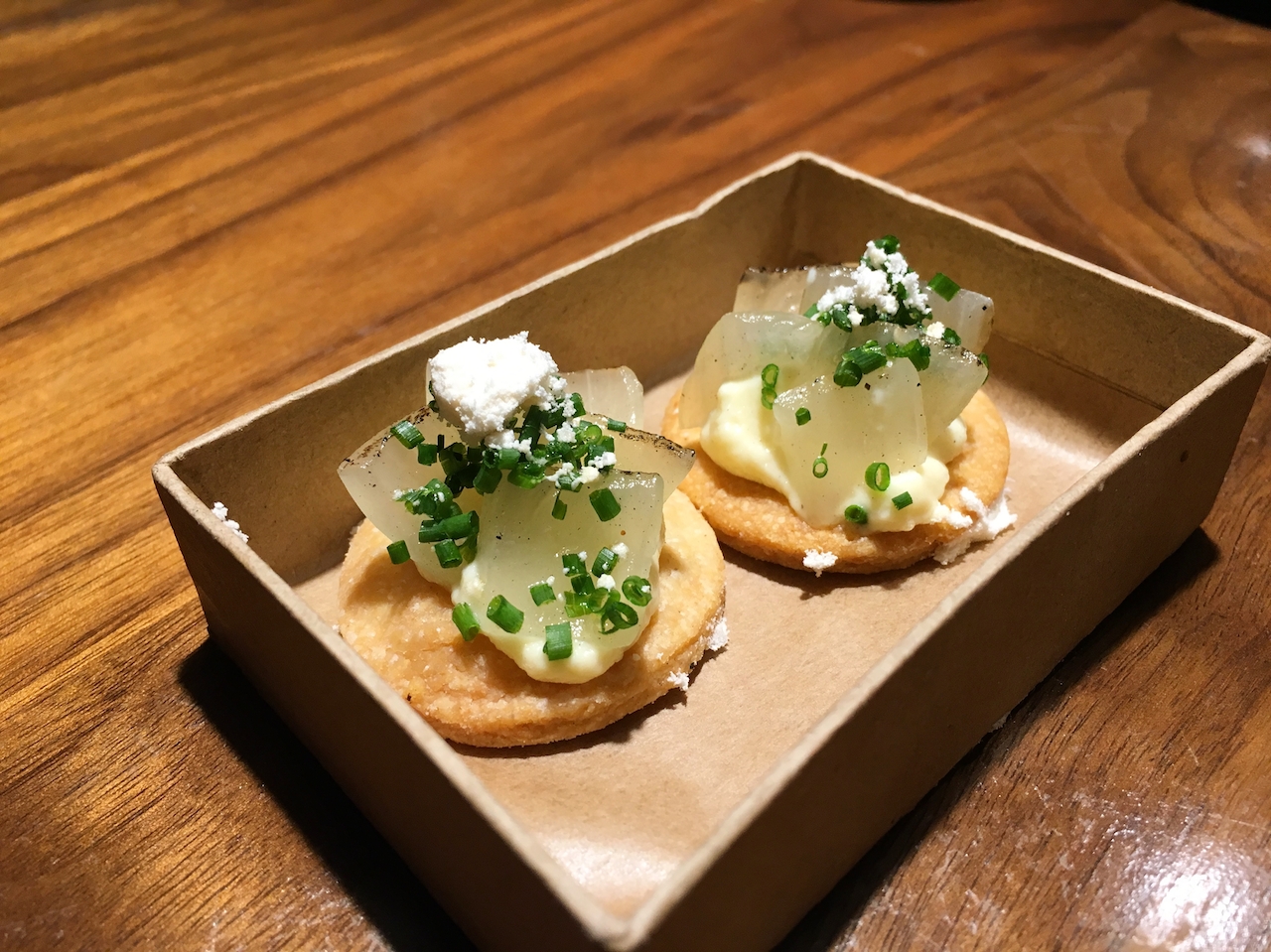
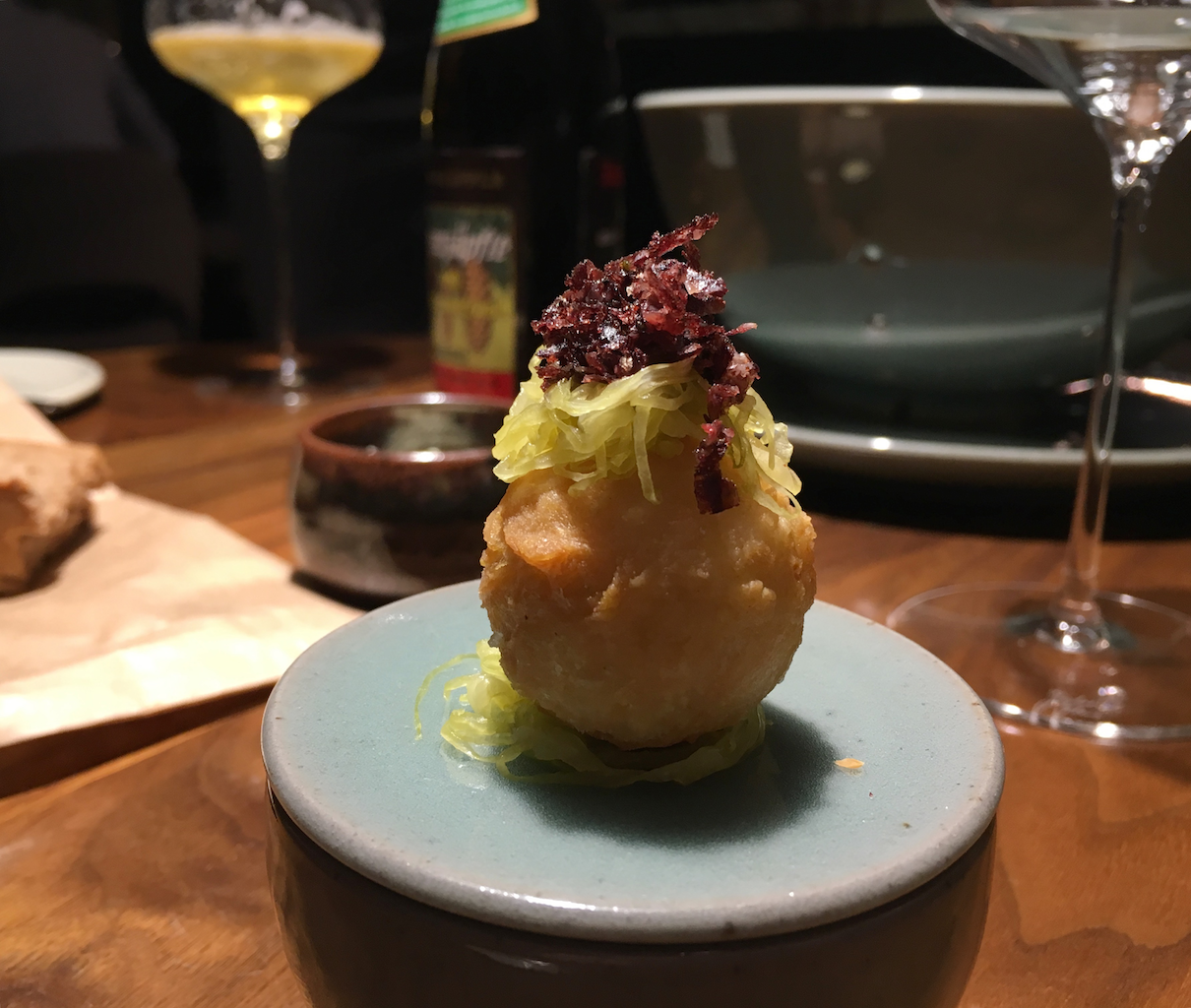
My first course was wonderfully moist and flavoursome char, rubbed with dried herbs and gently blowtorched. Surrounding the char were three little stacks of various types and preparations of crisp and pungent radish, little dollops of creamy smoked char crème, thinly sliced lardo, and buttery crumbs. A very good looking plate of food, with clean and precise flavours, and the crisp elements provided nice, contrasting textures.

Next up was a well-executed and inspired dish with duck hearts as the main star. Properly cooked, pink duck hearts, served with a comforting, slightly gelatinous duck jus, as well as three al-dente onion shells filled with a lovely mixture of shredded kale, mustard seeds, pickled green elderberry capers, and another helping of those delicious, buttery crumbs. Great to see offal presented in such an elegant and attractive way.
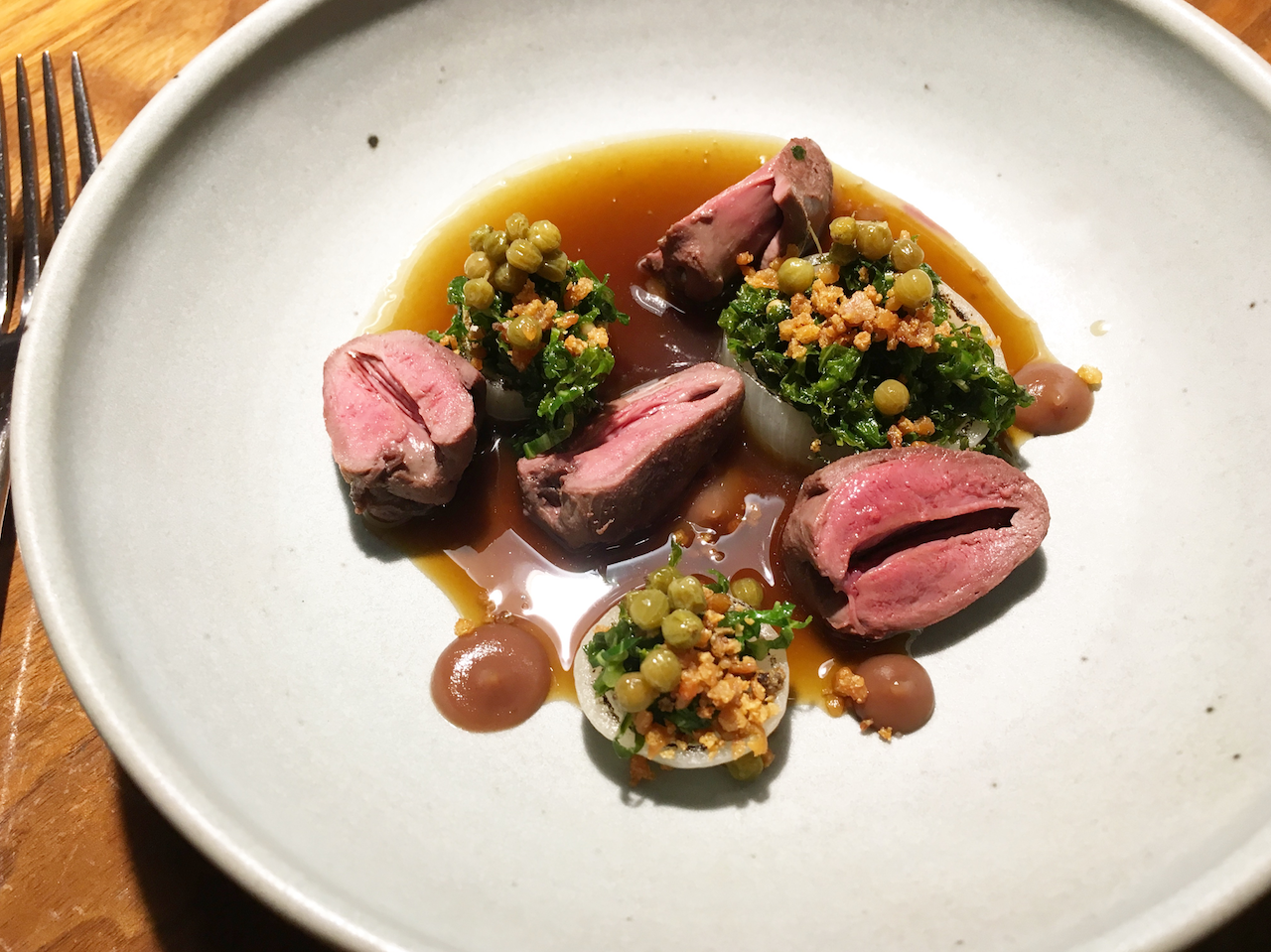
Main course was blade steak, slow-cooked in wine at 68°C for 20 hours, topped with toasted buckwheat, and nicely paired with brussels sprouts, a few pieces of pickled/salted gherkin, buckwheat espuma, and a lovely mixture of crisp potato and bacon bits. Slow-cooking the meat had resulted in wonderfully tender beef with lovely, delicate, red wine flavours, and its gentle richness was nicely balanced by the gherkin.
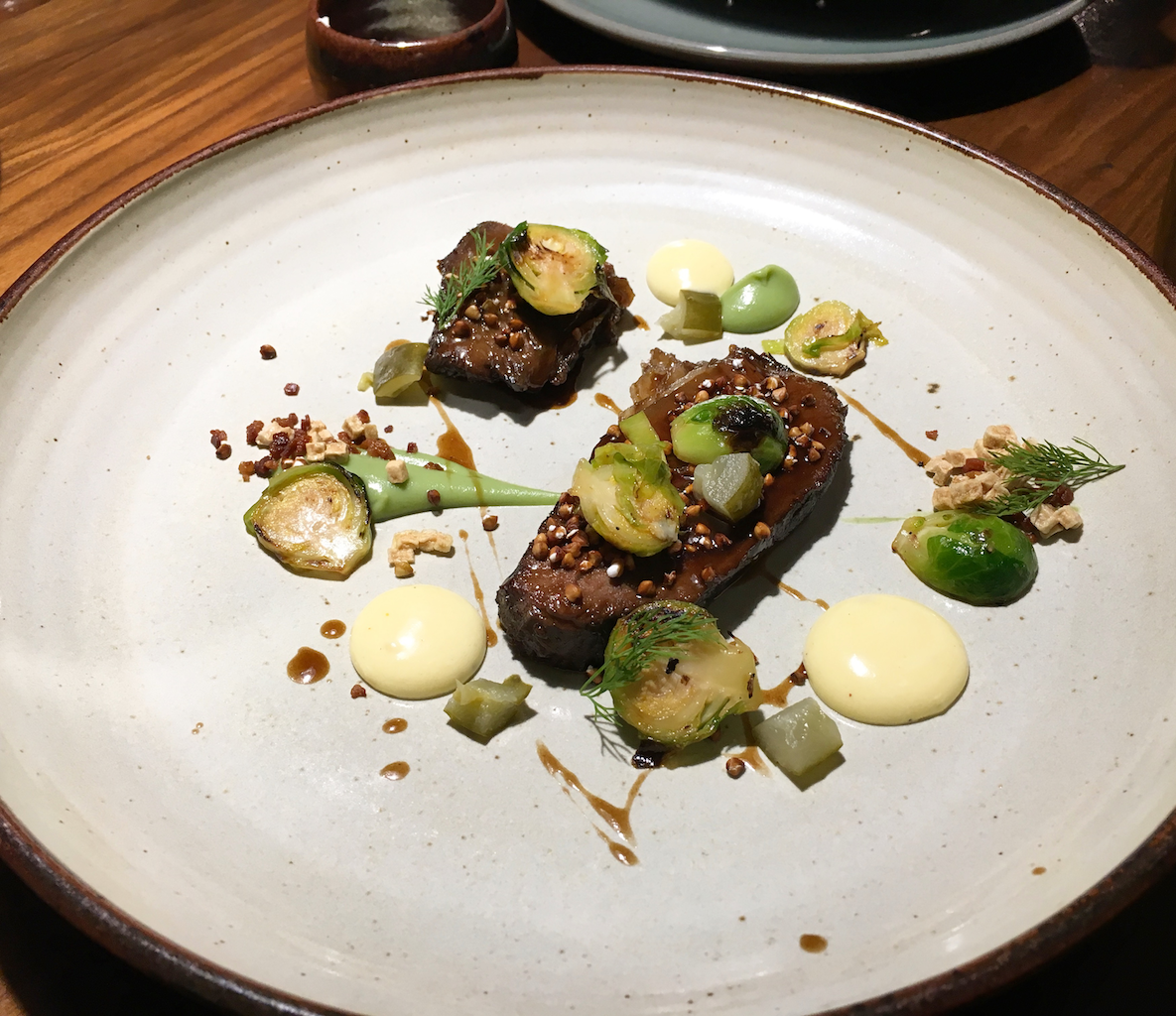
Dessert was exactly what I wanted it to be. A well thought-out combination of sweet and creamy Jerusalem artichoke ice cream, Jerusalem artichoke crisps, thinly sliced sweet and sour Jerusalem artichoke, a few lamb's lettuce leaves, some crunchy sunflower seeds, sunflower seed puree, and sensibly finished with some caramelised syrup to add a touch of sugary sweetness.
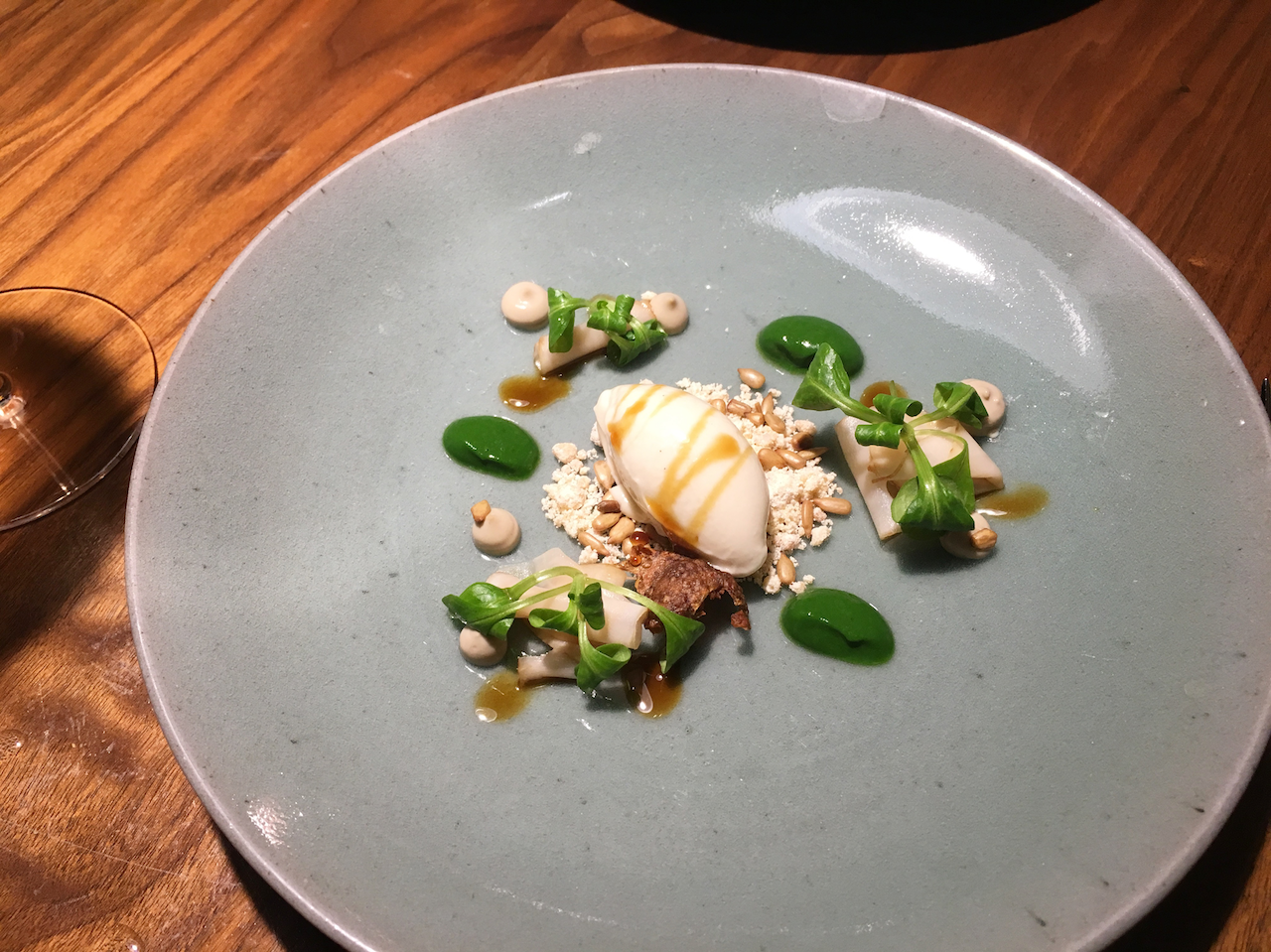
In the course of the last 10 years the German dining scene has undergone a huge transformation. It's a scene that I know well and I therefore feel comfortable saying that, especially at the high end, Germany offers some of the finest food in Europe, often still in a slightly formal setting. Yet, as in almost all other countries in Europe, in Germany too, a new generation of talented chefs has emerged which is offering exciting food and who are breaking away from the traditional fine dining experience. During my visit to Frankfurt I found Gustav, with its relaxed surroundings, the perfect antidote to other, often still traditional, Michelin starred siblings. Chef Jochim Busch delivers playful but detailed cooking with imaginative flavour and texture pairings. Everything worked, from the traditional Krapfen, which was given a contemporary twist, to the delectable duck hearts, the carefully composed wine list, and the relaxed but efficient service. So, if you're in Frankfurt and looking to get a taste of German "bistronomie", Gustav would be an excellent choice.













